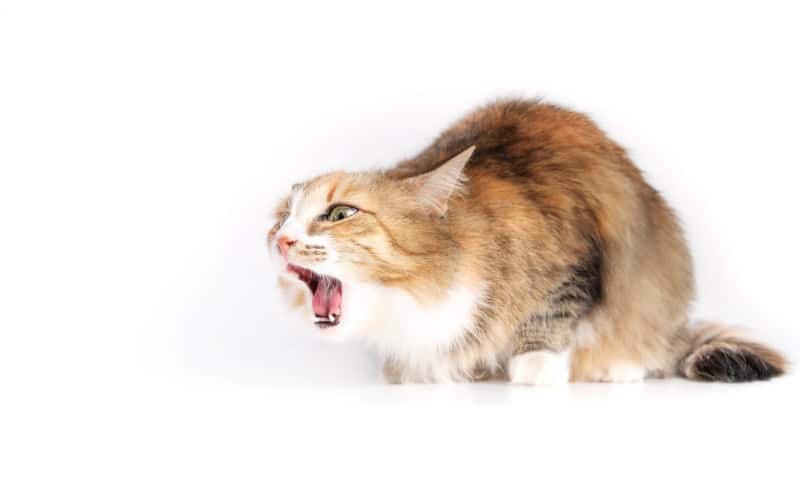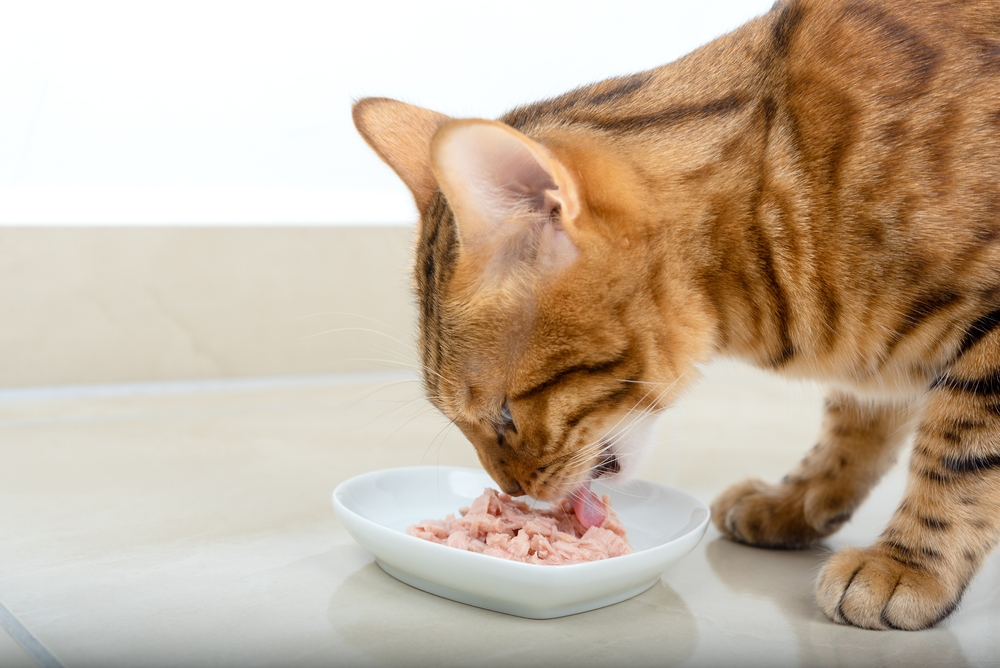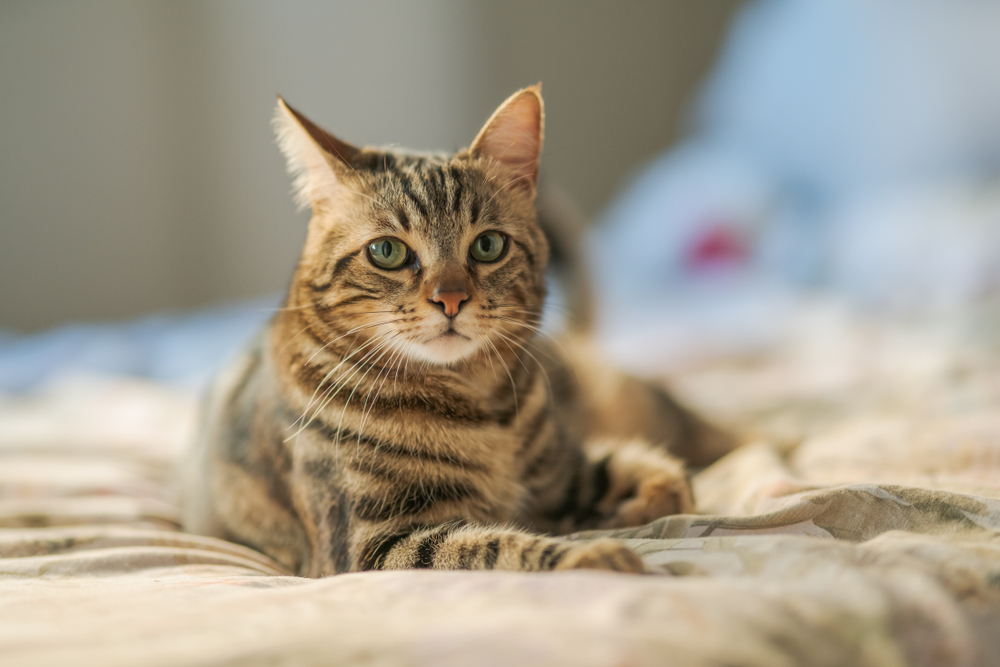Yuck! Your cat had retched up something long and hairy. Is it a mouse that didn’t get digested? Chances are that your cat has just vomited up a hairball. Let’s look at what causes hairballs and how you can try to help prevent them.
What Are Hairballs in Cats?
Hairballs have a slightly more scientific name, a trichobezoar. They are generally cylindrical rather than the round shape that the name “hairball” implies. They get this shape from passing through the esophagus, which is a long and tubular structure that connects the mouth to the stomach.
Some cats produce “wetter” hairballs with a looser consistency. If that is the case, talk to your vet to rule out other causes of vomiting.
Hairballs are just that—a wad of hair. Your cat gets hairballs when grooming themselves and dislodges hairs that they swallow. As your cat swipes its tongue across their hairs, backward-angled papillae on the tongue grasp the hairs. During the grooming process, your cat will generally swallow these hairs. Unfortunately, they can’t digest the hair, and it has to go somewhere. Some hairs pass uneventfully through your kitty’s gut, while others return as a hairball.
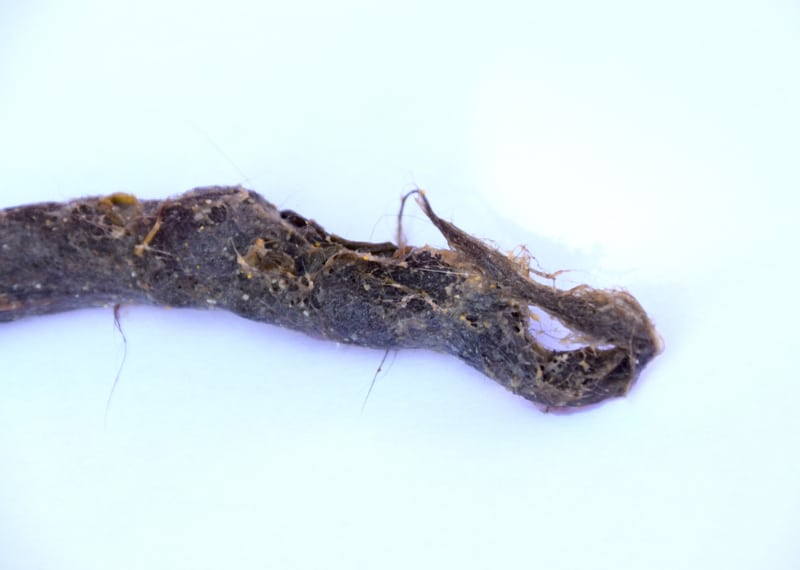
What Are the Signs of Hairballs in Cats?
The main sign of hairballs in cats is seeing the coughed-up hairball. You might also hear your cat retch to produce the hairball.
Hairballs vary slightly in appearance, such as size, although they are usually roughly the same color as your cat’s hair. Hill’s Pet points out gastric secretions usually make the hairball slightly darker than your cat’s natural hair color. Typically, about an inch wide, they can be an inch to 5 inches long.
What Are the Causes of Hairballs in Cats?
Unfortunately, your cat’s fastidious grooming habits are the root cause of their hairballs. Situations when a cat grooms more than normal are often associated with an increased frequency of hairballs.
- Cats with long hair coats tend to have hairballs more commonly than shorter-haired kitties.
- Animals tend to shed more as the weather gets warmer, so expect more hairballs as your cat sheds after winter.
- Older cats groom more frequently than younger cats, and males are more likely to develop hairballs.
- If your cat has a health condition that leads to excessive grooming, they are more likely to develop hairballs. Some common conditions include fleas, anxiety or stress, hyperesthesia, or allergies.
How Do I Care for a Cat With Hairballs: 5 Methods
You likely can’t completely prevent or eliminate hairballs in your feline family member. Still, there are steps you can take to minimize hairball formation.
1. Use Flea and Tick Medication
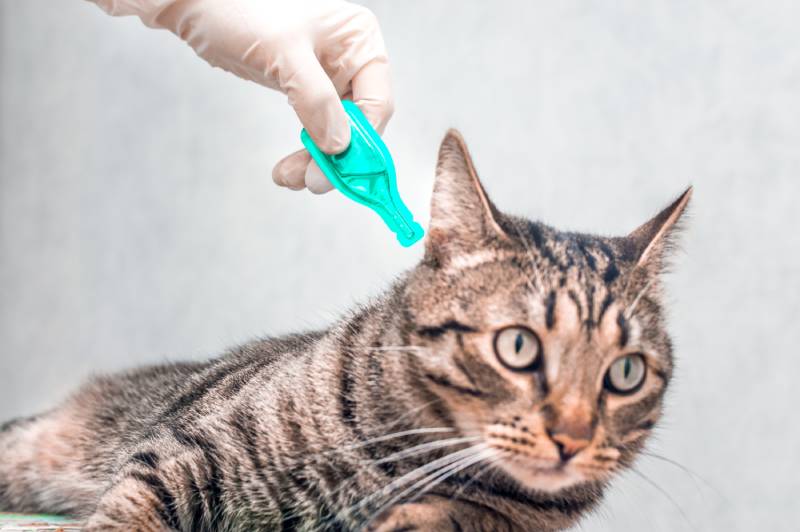
Keep your cat on flea and tick prevention every month, even if they are an indoor-only cat. External parasites can cause significant itching and may cause your cat to groom excessively, leading to more hairballs. (These parasites can also transmit diseases and other health issues, such as tapeworms.)
2. Groom Regularly
Brush your cat regularly. If you remove loose hairs daily, your cat has fewer hairs to groom away and ingest. If your cat doesn’t tolerate brushing right away, you might be able to get them used to it over time with patience and positive reinforcement. Consider also talking to your veterinarian or local groomer about options for your cat. Some cats do well by being shaved periodically.
3. Fish Oil Supplements

Fish oil products like Welactin can help decrease itching and strengthen your cat’s skin barrier. It can be helpful in allergic cats. Less itching tends to result in less licking. Speak to your vet about this option before applying it to your cat.
4. Hairball Control Foods
You can also look into food options to help combat hairballs. Some pet food companies make specific hairball control or hairball remedy foods. Your veterinarian can suggest one that is well-suited for your cat. These foods tend to be higher in fiber. If your veterinarian suspects a food allergy, they might suggest putting your cat on a diet designed to help with food sensitivities, which could help minimize your cat’s overgrooming from allergies.
5. Vet-Prescribed Laxatives
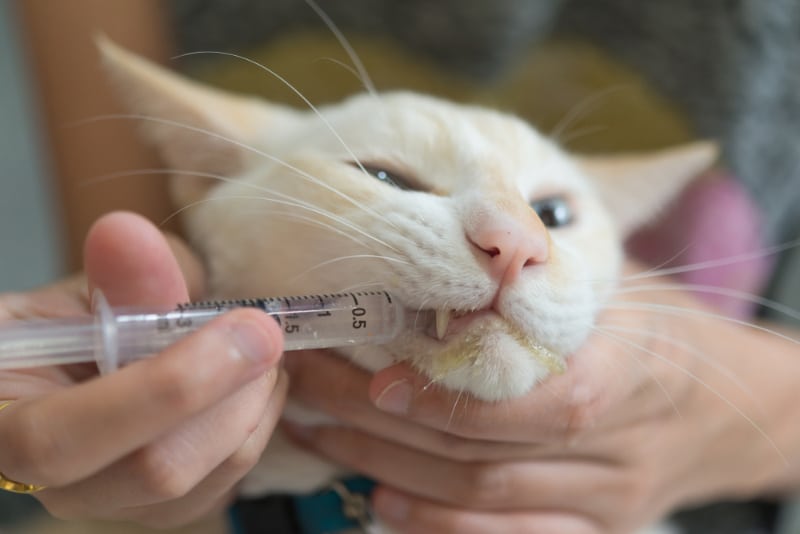
Your veterinarian may suggest a laxative product, such as Laxatone, which can help move hairs through the gut and decrease hairball production. These products are petroleum-based and help the hairs pass. Depending on the product, you can give these orally or place a small amount on your cat’s paw for them to lick off and ingest.
Signs That You Should Have Your Cat Examined for Hairballs
If your cat is repeatedly vomiting hairballs or making multiple attempts to produce a hairball unsuccessfully, you should have them evaluated by a veterinarian.
- Vomiting food
- Lethargy
- Inappetence
- Feeling hotter than usual (febrile)
Frequently Asked Questions
Should I worry about hairballs in my cat?
If your cat only produces hairballs occasionally, you likely have nothing to worry about. If your cat has hairballs regularly or also vomits food, you should have your veterinarian examine your feline. Hairballs can sometimes cause an intestinal obstruction, but GI issues such as gastric lymphoma or food allergies can also cause vomiting.
Will my vet run any tests if my cat has hairballs?
Your veterinarian will likely run several tests to evaluate your cat’s health after they perform a thorough physical exam. Blood work, a urinalysis, intestinal parasite screening, and an ultrasound or radiographs (X-rays) are useful to check for abnormalities linked to vomiting or hairball formation.

Conclusion
Hairballs don’t have to be a furry problem. Between a health exam to ensure there aren’t issues that need to be treated and good grooming and nutrition, you can avoid many hairballs.
Featured Image Credit: sophiecat, Shutterstock
Contents
- What Are Hairballs in Cats?
- What Are the Signs of Hairballs in Cats?
- What Are the Causes of Hairballs in Cats?
- How Do I Care for a Cat With Hairballs: 5 Methods
- 1. Use Flea and Tick Medication
- 2. Groom Regularly
- 3. Fish Oil Supplements
- 4. Hairball Control Foods
- 5. Vet-Prescribed Laxatives
- Signs That You Should Have Your Cat Examined for Hairballs
- Frequently Asked Questions
- Conclusion

